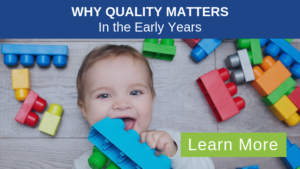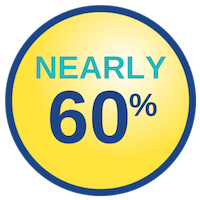Dual Language Learners (DLLs)
Nearly sixty percent of children five and under in California live in homes where a language other than English is spoken.
Incorporating ways that teachers can support the learning and development of dual language learners is not a choice, but a necessity.
Loss of home language in the early years due to lack of support, combined with incomplete English development, causes dual language learners to fall behind in kindergarten, and many never catch up.
This achievement gap can not only impact high school and college completion rates, it limits children’s ability to meet their potential once they become adults.
The Benefits of Bilingualism:
Research overwhelmingly shows that speaking more than one language is not only associated with increased ability to concentrate, solve problems, and focus, bilingual children outperform monolingual children in measures of literacy and math.
“California has not only a responsibility to support dual language learners who are at risk of falling behind, it is in the unique position to offer all California children the opportunity to become fully bilingual in order to better participate in today’s competitive workplace.“
Patricia Lozano
Executive Director, Early Edge California
What Early Edge California is doing to support Dual Language Learners:
Early Edge California, along with other partners, successfully advocated for the inclusion of $5 million in the 2018-19 California budget to provide DLL specific professional development to Early Learning teachers. Learn More
We’re partnering with other organizations to advocate for:
-
The California Teaching Commission (CTC) to include DLL content in the Child Development Permit and the Performance Expectations.
- Expansion of Early Learning dual immersion programs.
-
Including DLL indicators in Quality Counts California.
We’re promoting the benefits of bilingualism and highlighting model Dual Immersion programs.
We are working to increase teacher training that is specific to the needs of dual language learners, including supporting home language in the classroom while English language skills are developed.
We are advocating for increased funding of proven, effective dual immersion programs throughout the state.
We are generating awareness about the needs of dual language learners.












